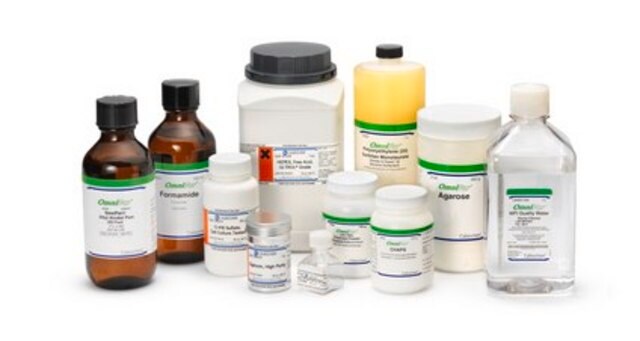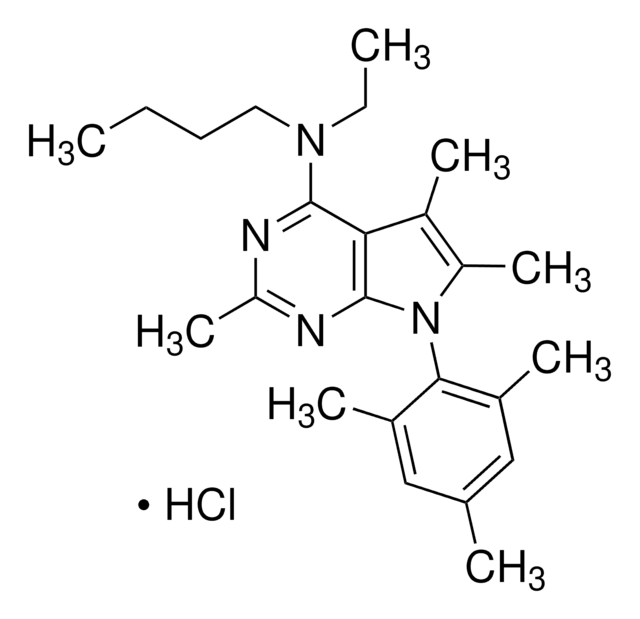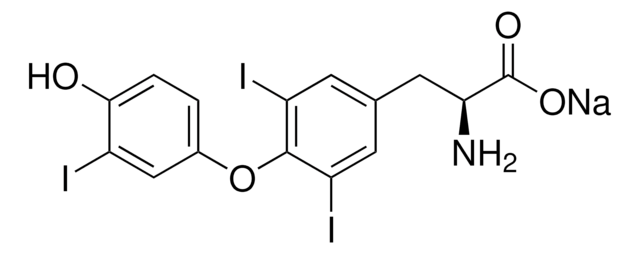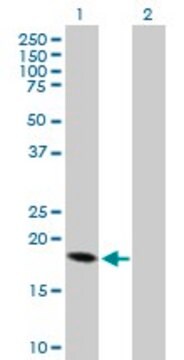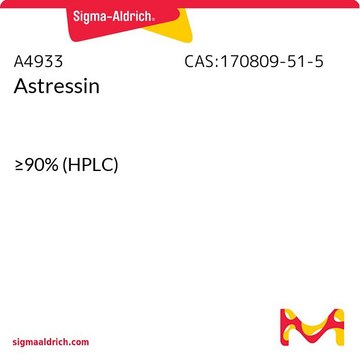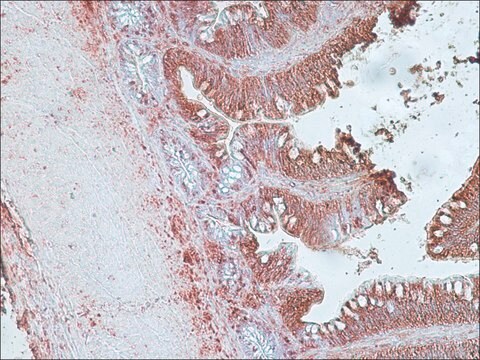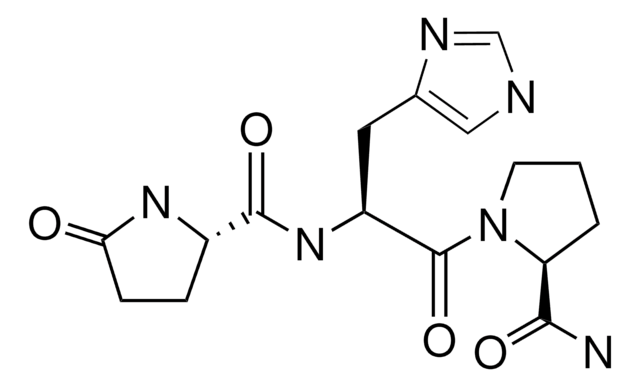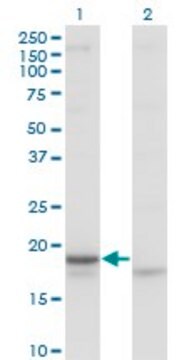C3042
Corticotropin Releasing Factor human, rat
≥95% (HPLC), powder
Synonyme(s) :
CRF, CRH
About This Item
Produits recommandés
Source biologique
human
rat
Niveau de qualité
Essai
≥95% (HPLC)
Forme
powder
Poids mol.
4757.45
Conditions de stockage
(Keep container tightly closed in a dry and well-ventilated place)
Technique(s)
activity assay: suitable
Solubilité
water: 1.00-1.04 mg/mL, colorless
Numéro d'accès UniProt
Température de stockage
−20°C
Clé InChI
VXFVFWFSJFSXHN-FAUHKOHMSA-N
Informations sur le gène
human ... CRH(1392)
Vous recherchez des produits similaires ? Visite Guide de comparaison des produits
Amino Acid Sequence
Description générale
Research area: Neuroscience
Application
- as a component in Dulbecco′s modified eagle medium (DMEM) for incubating lung explants
- as a component in serum-free complete medium for isolation and culturing of fetal distal lung epithelial cells
- in the synthesis of the corticotropin-releasing factor(CRF)-TAMRA 1 mixture
- in chronic intracerebroventicular administration, to study its effect on hypoxia in hippocampus
Actions biochimiques/physiologiques
Autres remarques
Anticorps
Code de la classe de stockage
11 - Combustible Solids
Classe de danger pour l'eau (WGK)
WGK 3
Point d'éclair (°F)
Not applicable
Point d'éclair (°C)
Not applicable
Équipement de protection individuelle
Eyeshields, Gloves, type N95 (US)
Faites votre choix parmi les versions les plus récentes :
Déjà en possession de ce produit ?
Retrouvez la documentation relative aux produits que vous avez récemment achetés dans la Bibliothèque de documents.
Les clients ont également consulté
Notre équipe de scientifiques dispose d'une expérience dans tous les secteurs de la recherche, notamment en sciences de la vie, science des matériaux, synthèse chimique, chromatographie, analyse et dans de nombreux autres domaines..
Contacter notre Service technique